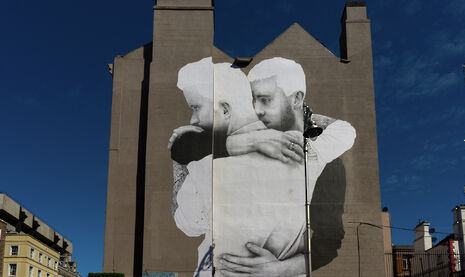We should care about gay marriage
The significance of legalising gay marriage is in its symbolic value, argues Clara Strandhoj

On Saturday, Ireland voted to legalise gay marriage. It is the first country in the world to do so by popular vote. I think most of us would agree that this is very, very exciting.
Or would we? Last night, a friend of mine told me that he didn’t really get the fuss. He didn’t understand why gay marriage had become the symbol of equality that it has. If it is possible to be in a civil union with the exact same rights as a married couple, what difference does it make?
I have grown so used to being around those who unquestionably accept gay marriage as an important, even indispensable step in the gay rights movement, that I didn’t quite know how to respond to this statement. It was not homophobic; my friend was merely questioning why the right to marry had become so important for the gay rights campaign, and could not quite seem to get worked up about the result in Ireland.
This conversation has really forced me to reflect upon my avid support of gay marriage. It is easy to be swept up in social movements because they seem so obviously right. I have always supported gay marriage as a matter of course; for me it is an uncomplicated matter that warrants universal support. I have learnt at Cambridge, however, that it is easy for people to be blinded by their own convictions, and so I decided it was worth considering the reasons I support it more deeply.
The obvious conclusion to draw, of course, is that my opinion on the matter is of little consequence; as a heterosexual individual, I do not have the right to dictate what the gay rights movement should or should not care about. The movement has adopted marriage as a symbol of equality, and therefore, as a supporter of the movement, I adopt it too.
Beyond this, however, I disagree with the foundation of my friend’s question that if there is no practical difference between a civil union and a marriage, why does it matter? By the same logic, I would argue that there is no practical difference between studying a degree at Cambridge and being allowed to graduate, and studying a degree at Cambridge but not being allowed to graduate on grounds of sex. Everyone received the same education, so why does it matter?
The value of symbolism cannot be underestimated. There is pride to be drawn from introducing a husband as opposed to a partner, in remembering a wedding, as opposed to a civil ceremony, and in the knowledge that you are regarded by the society in which you live as being just as equal as any heterosexual couple, on paper as well as in the flesh.
Think what you like about marriage. My parents are the happiest couple I know; they were high school sweethearts, have been together for nearly thirty-two years, and are not married. Marriage is clearly not necessary for a happy relationship, and there are valid reasons to think of it as an antiquated institution.
This is an easy argument to make, however, if a person has known their entire life that, should they choose it, the option to marry is there. This is the same with the option to have children without judgement or legal complications as well as the idea that one has never had to consider what one’s partner can wear to a May Ball because they are not going to challenge the heteronormative dress codes of such events.
It is easy for us at Cambridge, whatever our sexuality, to disregard the big fuss about what happened in Ireland. It is easy to become complacent, because in our society most people scoff at the thought of opposing gay marriage. For most of us the result is merely a reflection of views we have held most of our lives. It is uncontroversial.
But it is a big deal. It is a huge deal. It is something that should not be treated as just another news article: it should be discussed and it should be celebrated. It represents one more country from a growing minority that is validating the relationships of people who all their lives have been told that their love is lesser. It tells people in Ireland that their love is valid regardless of their sexuality, and it sends that signal out to people across the world, the majority of whom live in societies in which gay couples either cannot marry, or are actively persecuted.
Most importantly, the result sends a signal out to the couples that their love matters, those couples who do not have the luxury of saying that they don’t get the fuss.
 News / Clare Hall spent over £500k opposing busway 24 December 2025
News / Clare Hall spent over £500k opposing busway 24 December 2025 Comment / The ‘class’ of Cambridge24 December 2025
Comment / The ‘class’ of Cambridge24 December 2025 News / Caius mourns its tree-mendous loss23 December 2025
News / Caius mourns its tree-mendous loss23 December 2025 Comment / League tables do more harm than good26 December 2025
Comment / League tables do more harm than good26 December 2025 News / Girton JCR publishes open letter expressing solidarity with Palestine25 December 2025
News / Girton JCR publishes open letter expressing solidarity with Palestine25 December 2025









